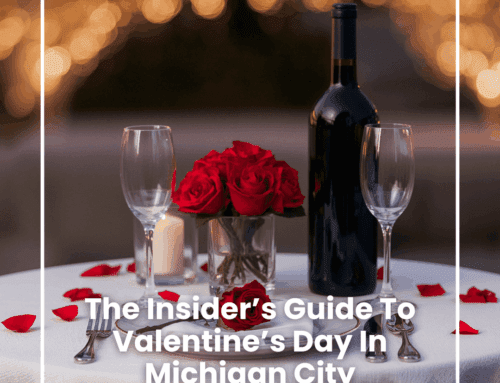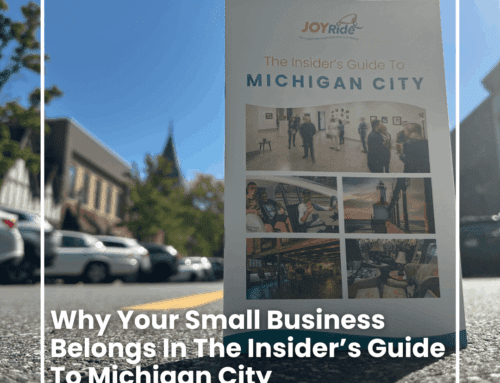Last week, we sat down with the founder of the Michigan City Chamber Music Festival to discuss this year’s groundbreaking programming, the organization’s mission to make classical music accessible to all, and why this summer’s concerts are not to be missed. Here is your inside guide to this free and accessible event that is celebrating female composers this season!
Tell me a little bit about your organization and some of the history behind the Michigan
City Chamber Music Festival.
Nic: “It started way back around the year 2000. I was teaching at the Hot Springs Music Festival in Arkansas and made friends with some of the other faculty. It was a wonderful music festival with a lot of teaching and performing, and we thought, “We’ve seen enough of this in our careers, maybe we could start our own festival.” We wondered what we could trim, what mistakes we could avoid, and how we could make it better.
My wife, Sunny, and I had just gotten married and bought a home in Michigan City. I told them about Michigan City, a city on the lake with a good theater community, lots of painters and sculptors, but not a whole lot of classical music. So, we thought we’d give it a try.
The first two years, the musicians donated their services. We didn’t get paid. Finally, in the third year, we had enough footing under us and were able to start paying people. We’ve been having great crowds even from day one.”
What makes your festival unique?
Nic: “It was very important to us that these concerts remain free and open to the public. We have formal recitals as well as educational concerts for children. I’ve been a concert violinist for 35 years. My colleagues and I sometimes felt like there was almost a barrier between the stage and the audience, especially in the United States. We weren’t as connected the same way other types of music are with their audience.
So, it was very important to us that we try to break that barrier down. We talk to the audience from the stage, we tell them what to listen for, we tell them about the music and its interesting points. After every performance, we also have a reception so people can meet the musicians. If they have questions about the music or about our lives, we can talk about it. In these 24 years, some dear friendships—lifelong, strong friendships—have been made through that.”
Can you tell me about the musicians who participate?
Nic: “I am the only one, along with my wife, Sunny, who is our education director, that lives here locally. Everybody else comes from really all around the world. Our other violinist was born in Kraków, Poland, and right now she’s a member of the Knoxville Symphony Orchestra. Our cellist, Wesley, is a professor of cello at the University of Tennessee. Our two pianists are professors—one at the State University of New York, one at the University of Florida. Our new violist is a professor of viola at DePaul University in Chicago.
We are all very high-level concert artists. We have Grammy nominees, Emmy award winners, and recording of the year winners. So, it was very important that we bring in very high-quality performers, all for free, so that this community can enjoy this great music at its absolute best.”
What can visitors expect, especially those who have never been to a chamber music festival?
Nic: “I think they could probably expect not what they’re expecting! I’ve been to many concerts of this type of music, and in the United States, it’s just too formal. You have to come in silently, sit down, and wonder, “How do we clap now? Do we not clap now? Am I allowed to smile?”
We have to remember when this music was written. On Wednesday night, August 13, we’re going to talk about this—when this music was written, these composers and performers were the Taylor Swift of their time! They were the rock stars, the superstars, and people did jump up and down and scream. Ladies threw garments on the stage to Franz Liszt, just like what happens at modern-day rock concerts.
We tell people: if you want to laugh, if you want to scream, do it! If you want to jump up when something moves you that much, we want you to do that. We want this to be open to everybody—that’s one reason we’re free.”
This year, you’re highlighting female composers. Can you speak to that choice?
Nic: “We think it’s very important that we highlight music not just from the accepted masters like Mozart, Beethoven, and Bach, but also the forgotten composers, especially those from underserved communities—people of color, LGBTQ, and this year we’re really trying to highlight and support female composers.
Every night is going to have a female composer—some of them amazing women composers that have been forgotten only because they are female. For instance, we’ve all heard of Mozart, but not many people know that his sister was probably a greater talent than he was. She was amazing, and it states in the letters between them that they adored each other. But society just wouldn’t let her have a career in music. As a child, she was astounding, but when she was too old to be toured around as a curiosity, she just had to be a mother.
Also, Clara Schumann—we all know her husband Robert Schumann, but Clara was probably a greater composer and pianist than Robert. We’re going to highlight her music at the last concert right next to Mozart. It’s a little ironic pairing, but they’re both very great composers.
This is a living art. If we only play the music of dead white men from 300 years ago, what are we saying? Is there no music today that should be performed? I can’t go on that way.”
You mentioned there’s been some pushback to this programming choice?
Nic: We have had complaints that we are “too woke,” that we are “too political,” and that we are eliminating the great masters from getting their recognition. I can’t tell you how far away that is from the whole point of artistic endeavor.
On Monday night, August 11, we have a world premiere by a very important female composer, Alyssa Morris. This piece for oboe and bassoon will be performed by Nancy Ambrose King, who is considered one of the top five oboists in the world and is a full professor at the University of Michigan, along with her son, Trevor.
So, I’m asking especially the female community to pack the house that night. Come out to the rafters—we’ve got to pack that one.”
What would you want people to know about chamber music as an art form?
Nic: “Chamber music is incredibly intimate. To define chamber music, there’s really only one rule: you have to have at least two players, and the maximum is around a dozen players, but there are no conductors ever. We are completely conductorless.
The energy between the players is pretty high-level. We have to communicate tempo, different phrasing, and how we’re going to end phrases—all with high emotion. The audience is right there as part of it; they can see it going on. They’re very close to us, and that’s a very memorable experience. They just walk away from it kind of changed.”
What challenges is the festival facing?
Nic: “Like all arts organizations in the United States, we normally get our funds from three different areas: private donations, grants, and ticket sales. We don’t have any ticket sales since everything is free, so ours comes through private donations and grants.
This last year, for the first time ever, we’ve had zero dollars in grants—not one penny. Everything is from private donations. We take donations at the door, but you don’t need any money to get in. Most artistic organizations need public help more than they ever have, and many are in the same boat we are. We’re not sure what’s going to happen next year.”
Is there anything else you’d like people to know?
Nic: “Please check out our website at www.mccmf.org—it has everything about our concert series, the musicians, and the music we’re playing. We want people to come and bring somebody with them. Give us a try—the price is right! We’re all very friendly, and I think anybody will enjoy their evening. Even if they decide it’s still not for them, they’re still going to enjoy their night out.
We also have two concerts for children during the week, during the day. Adults love our children’s concerts too, so give that a try as well.”
The Michigan City Chamber Music Festival runs through August, with all concerts free and open to the public. For complete schedule and venue information, visit www.mccmf.org.






